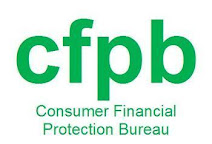The Urban Institute's recent landscape analysis of the racial homeownership gap - A Landscape Scan of Homeownership for Households of Color (November 2022) - found that households of color have lower homeownership rates than white households. While reasons for these racial disparities vary, "they are often attributable to differences in households’ access to financial resources and persistent racial discrimination."
On October 4, 2023, the Urban Institute and Living Cities held a conference to explore how homeownership could be made more equitable for everyone. Living Cities "is a collaborative of 19 of the world’s largest foundations and financial institutions working to close racial income and wealth gaps in American cities."
At the conference, local and federal government leaders discussed systemic inequity in homeownership for people of color and various innovative solutions to close these persistent homeownership gaps. Especially highlighted were the local homeownership initiatives currently being done by cities in the "Closing the Gaps’ Year of Reckoning Cohort" and existent racial equity plans by federal agencies.
While racial disparities in homeownership persist, institutions such as Fannie Mae and Freddie Mac, the U.S. Department of Housing and Urban Development (HUD), and state and local governments are working to achieve greater racial equity in U.S. homeownership.
Barriers to Homeownership Equity
One conference focus was a panel focused specifically on federal barriers to homeownership for nonwhite communities. Participants included Katrina Jones, vice president of racial equity strategy and impact at Fannie Mae; Demetria McCain, principal deputy assistant secretary for fair housing and equal opportunity at HUD; Pamela Perry, vice president of single-family equitable housing at Freddie Mac; and Rekha Balu, director of federal equity initiatives at the Urban Institute.
Saving the funds needed to close on a single-family home is a major impediment for prospective first-time homebuyers in communities of color. This challenge stems from historic wealth inequities that diminish generational wealth. Additional obstacles to equity include insufficient access to credit disproportionately impacting Black and Latino families and high rental housing costs sap families' efforts to save money toward a downpayment. Most renters' on-time rental payments are not reported to credit bureaus, reducing their credit scores and lessening their ability to qualify for a mortgage at a favorable rate. One solution could be to increase an applicant's credit score by 60 points and make them eligible for prime financing rather than a subprime loan.
Even among homeowners, inequities persist. A homeowner's race often affects assessments of home values is attested by the approximately 200 active appraisal discrimination cases HUD is managing. Scammers have targeted communities, such as Black and Caribbean homeowners in New York, and defrauded them out of their titles, according to HUD.
Possible Solutions to Inequity
Important solutions proposed included:
(1) Efforts to bridge the gap between aggregate and abstract data and families’ on-the-ground, anecdotal experiences. Jones described efforts at Fannie Mae to create fictional personas to illustrate the specific barriers different groups of people face in their journeys toward homeownership; these personas, created from housing data and research reports, help make housing challenges more comprehensible and less abstract. The personas give researchers at Fannie Mae analytic clarity to better understand how different groups’ challenges in the journey to homeownership intersect and differ. According to Jones, this approach offers a powerful way to bridge the gap between individual experience and aggregate data to drive tailored policy changes through the organization’s Equitable Housing Finance Plan.
(2) The panelists pointed out that real estate professionals can also make improvements. For example, diversifying the home appraisal industry can help reduce racial appraisal gaps. Perry described a partnership among Fannie Mae, Freddie Mac, and the Appraisal Institute (a professional organization that educates, credentials, and develops ethical standards for real estate appraisers) to hold recruiting events and increase scholarship and mentorship opportunities to diversify the profession. McCain added that Mississippi, which had scored poorly on a national assessment of diversity among home appraisers, responded by creating a program to recruit and train a more diverse cohort of appraisers.
(3) Special purpose credit programs, which target credit to historically underserved communities and communities living with the legacies of past discrimination, can also help alleviate homeownership inequities. McCain stated that HUD has found that special purpose credit programs for real estate loans or credit assistance are permissible and has advocated for their expansion to help promote homeownership equity. Perry pointed out that the U.S. has historically promoted homeownership through generous mortgage programs, noting that in the 1950s, many white families took advantage of favorable lending terms that facilitated first-time home purchases - opportunities denied to families of color, which has contributed to the inequities of the present. Jones added that similar credit programs today that require lower downpayments or offer homeownership counseling remain useful tools for promoting homeownership, this time for those who had previously been excluded.
(4) A sustained focus on identifying barriers to homeownership and a commitment to implementing solutions are showing how organizations can help homebuyers overcome longstanding housing inequities. The ongoing challenge, said panelists, is bringing these and other solutions to maturity and to scale.
Read the November 14, 2023 PD&R Edge article.






